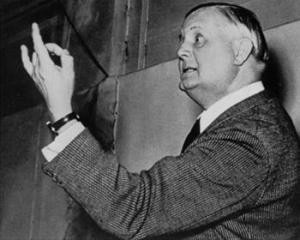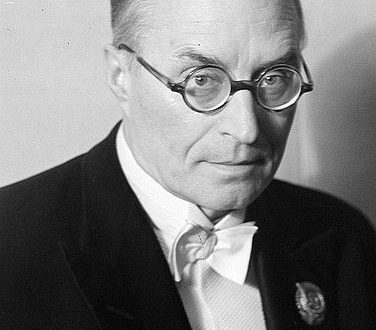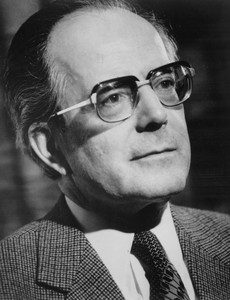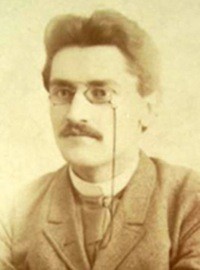
Fritz Busch |
Fritz Busch

The family of a modest violin maker from the Westphalian town of Siegen gave the world two famous artists – the Bush brothers. One of them is the famous violinist Adolf Busch, the other is the no less famous conductor Fritz Busch.
Fritz Busch studied at the Cologne Conservatory with Betcher, Steinbach and other experienced teachers. Like Wagner, he began his conducting career at the Riga City Opera House, where he worked for three years (1909-1311). In 1912, Busch was already “city music director” in Aachen, quickly gaining fame with performances of monumental oratorios by Bach, Brahms, Handel and Reger. But military service during the First World War interrupted his musical activities.
In June 1918, Bush again at the conductor’s stand. He headed the Stuttgart Orchestra, replacing the famous conductor M. von Schillings there, and the following year, the opera house. Here the artist acts as a promoter of modern music, in particular the work of P. Hindemith.
The heyday of Bush’s art comes in the twenties, when he directs the Dresden State Opera. His name is associated with such works of the theater as the premieres of the operas “Intermezzo” and “Egyptian Elena” by R. Strauss; Mussorgsky’s Boris Godunov was also staged for the first time on the German stage under Bush’s baton. Bush gave a start to the life of the works of many now famous composers. Among them are the operas Protagonist by K. Weil, Cardillac by P. Hindemith, Johnny Plays by E. Krenek. At the same time, after the construction of the “House of Festivals” in the suburbs of Dresden – Hellerau, Bush paid close attention to the revival of the masterpieces of the stage art of Gluck and Handel.
All this brought Fritz Busch the love of the audience and great respect among colleagues. Numerous foreign tours further strengthened his reputation. It is characteristic that when Richard Strauss was invited to Dresden to conduct the opera Salome in connection with the twenty-fifth anniversary of the first production, he motivated his refusal to perform as follows: Salome” to win, and now the worthy successor of Shuh, the wonderful Bush, must himself conduct the anniversary performance. My works require a conductor with an excellent hand and absolute authority, and only Bush is such.
Fritz Busch remained director of the Dresden Opera until 1933. Shortly after the seizure of power by the Nazis, the fascist thugs staged an ugly obstruction of the progressive musician during the next performance of Rigoletto. The famous maestro had to leave his post and soon emigrated to South America. Living in Buenos Aires, he continued to conduct performances and concerts, successfully toured the United States, and until 1939 in England, where he enjoyed great public love.
After the defeat of Nazi Germany, Bush again regularly visits Europe. The artist won the last triumphs with performances at the Glyndebourne and Edinburgh festivals in 1950-1951. Shortly before his death, he brilliantly performed in Edinburgh “Don Giovanni” by Mozart and “The Force of Destiny” by Verdi.
“Contemporary Conductors”, M. 1969.





